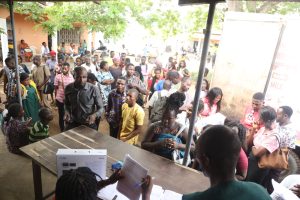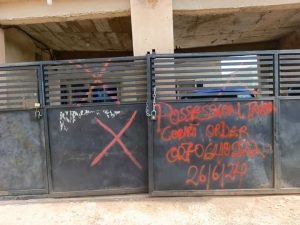Lobby govts to allocate 1% of GDP to promote science, tech …African parliamentarians urged
African parliamentarians have been tasked to lobby their governments to allocate one per cent of Gross Domestic Product to science and technology to meet global standard for better education outcome.
According to Professor Saidou Madougou, Director, Department of Education, Science, Technology and Innovation of the Africa Union (AU) adequate financing and investment in education was the foundation for sustainable development in Africa.
He was delivering a paper on “Analysing the AU theme for 2024, Continental Education Strategy for Africa (CESA), Sustainable Development Goals (SDG) 2030, and the AU Agenda 2063, and the Parliamentarian’s role in advancing the agenda” at a seminar at the Pan African Parliament (PAP) here in Midrand, South Africa.
The seminar aimed to sensitise the Parliamentarians about their role in promoting the theme and increase support to improve access to inclusive, quality education to meet economic and social needs of the African continent.
The CESA strategy seeks to reorient Africa’s education and training to meet the knowledge, skills, innovation, and creativity required to nurture African core values and promote sustainable development at all levels to achieve the Africa we want.
It is estimated that the unit cost for the provision of quality education to an African child is $ 2000.
“Educate an African fit for the 21st Century: Building resilient education systems for increased access to inclusive, lifelong, quality and relevant learning in Africa” is the theme of the AU which also forms the focus of the Third Session of the PAP.
Currently, most countries across Africa are not reaching the target of one per cent budgetary allocation of GDP to science and technology, apart from South African and North Africa.
It came to light from the 2022 UNESCO Report on Education in Africa that nine out of 10 African children cannot read simple text with comprehension by age 10, which is highest in sub- Saharan Africa, a situation likely to have been worsened by the COVID-19.
According to the report, Africa will account for more than 90 per cent of global external financing needs for education by 2030 with additional $40 billion required to finance education to achieve the SDGs on education and towards meeting the Africa agenda 2063.
The report also said Africa will require additional 17 million teachers to achieve universal access to primary and secondary education by 2030.
The President of the PAP, Fortune Zephania Charumbira, urged Parliamentarians to move the education agenda from rhetoric to concrete action by addressing barriers to inclusivity, affordability and applicable to the needs of the citizens of Africa.
He said education was universal human right and public good “but too many children on the continent do not enjoy this right.”
The Pan-African Parliament was established in 2004 as a legislative organ of the AU to ensure full participation of Africans in development, and economic integration.
As legislative organ, the PAP plays critical role in ensuring that AU policies and treaties were translated into national legislation and enforced by member countries.
FROM ALHAJI SALIFU ABDUL-RAHAMAN, MIDRAND, SOUTH AFRICA
The post Lobby govts to allocate 1% of GDP to promote science, tech …African parliamentarians urged appeared first on Ghanaian Times.







